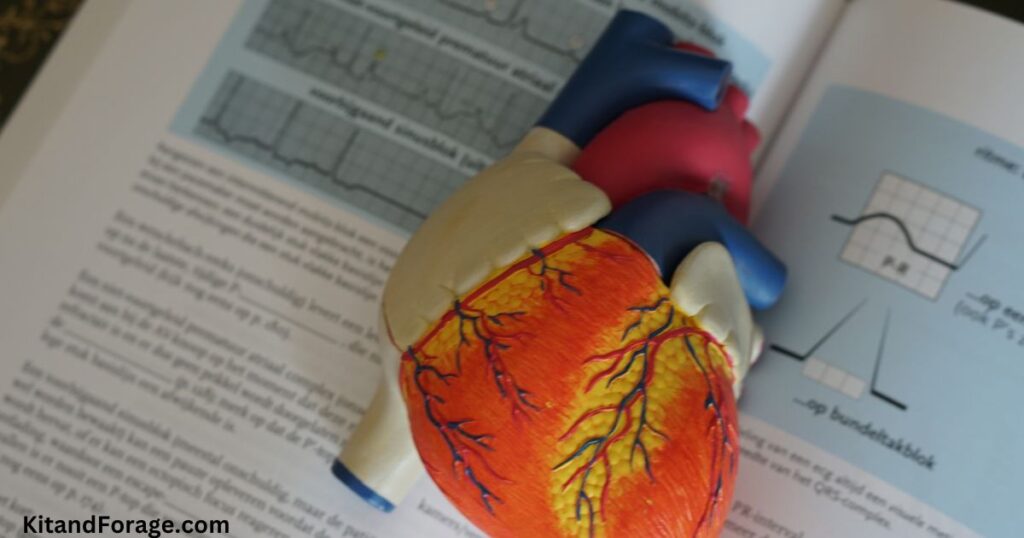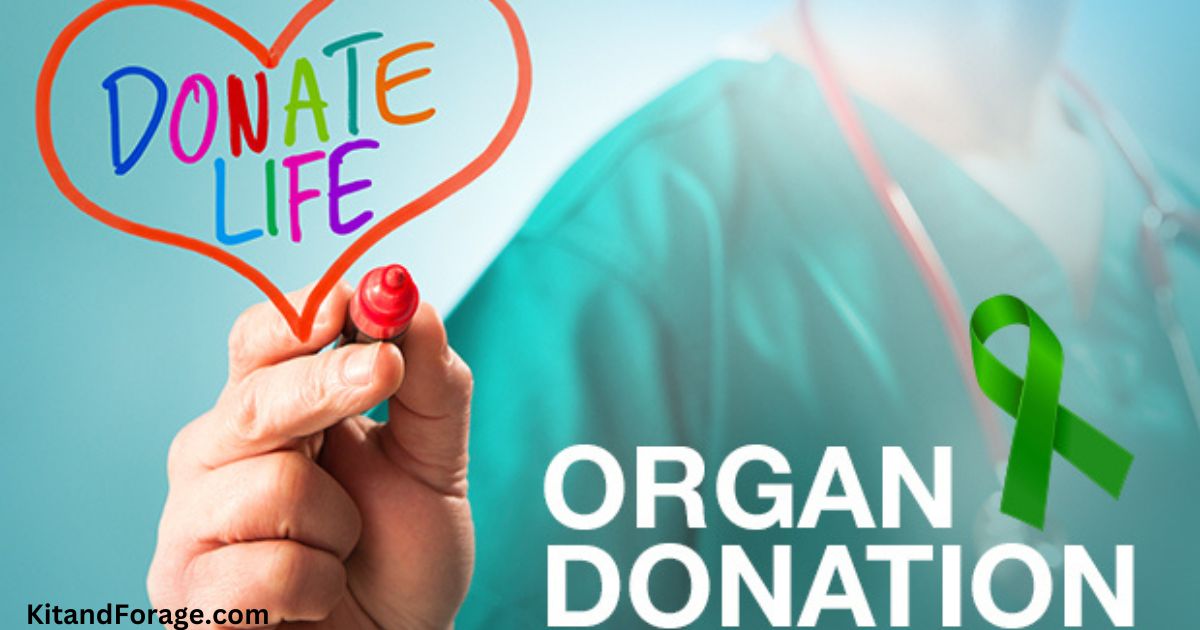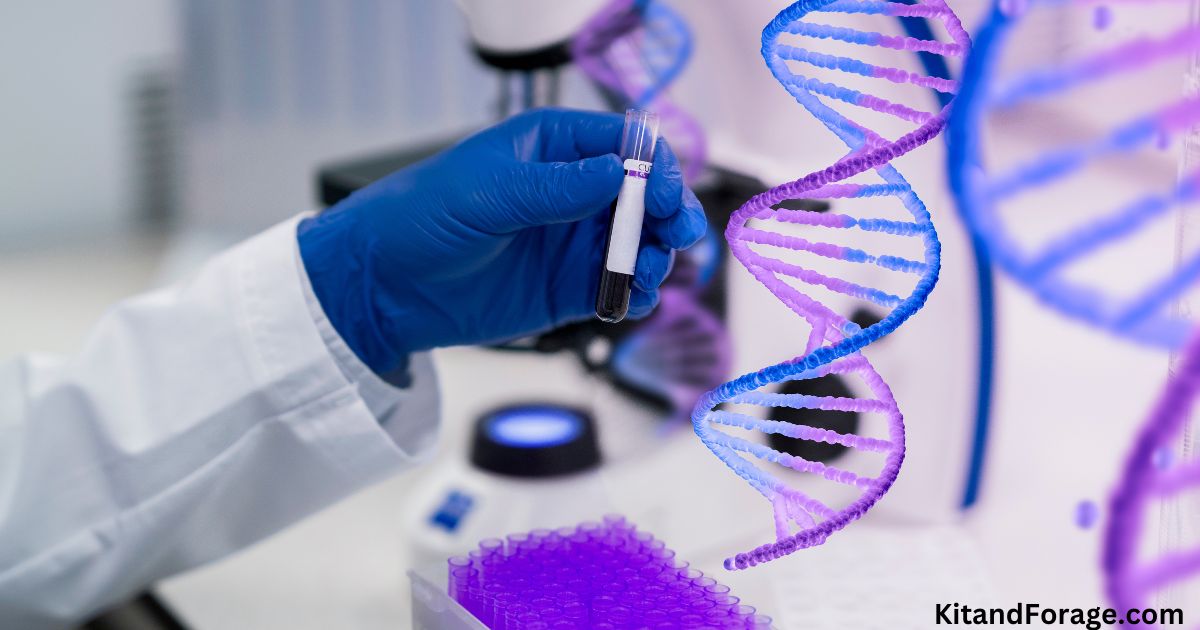Volunteering to donate an organ can save lives and make the world a better place. People need organ transplants every day, but due to the shortage of donated organs, so many people die. This part will talk about 15 strong reasons why organ donation is so important for saving lives and helping people who need it.
Giving an organ or a part of an organ to help save someone else’s life is called organ donation. Donated organs can come from people who are still alive or who have died, and they can be used of someone who needs them. The most common organ transplants are the heart, liver, kidney, lung, and pancreas.

The benefit of why organ donation is important
By giving your organs to people who need them, you could save lives and make their lives better. given organs are in very short supply around the world, and people are still waiting for them more than they are being given. We will talk more about the benefits of organ donation, bust some myths and false beliefs, and talk about how it affects families and communities in the parts that follow.
If you want to learn more about organ transplants or are thinking about becoming an organ donor, read on to find out why it is so important.
1. Making it easier for people to get life-saving transplants
Donating an organ is a simple but powerful act that changes neighborhoods and saves lives. Donating an organ gives people who need them hope that they can get an organ transplant and live. This part talks about how to become an organ donor and what you need to do. It also talks about how important organ donation is for giving people who need them more access to life-saving organ surgeries.

2. The Steps to Donate an Organ
The first thing you need to do to become an organ donor is to let the donation registry in your state or the national donor registry know about your choice. Once you’re listed, your choice can be found if you die, and your parts can be looked at for donation.
Know what I mean? You can also say that you want to be an organ donor on your driver’s license or state ID when you apply for or update it.
After you register, you should tell your family or loved ones about your choice. They may be advised during the process and can help make sure your wishes are carried out. Everyone can become an organ donor, no matter what age, health, or medical background they have.
3. Requirement for Organ Donation
There are many medical and legal requirements involved in the organ donation process. Medical workers will carefully look at the organs to see if they are healthy enough to be transplanted. Legal requirements include getting permission from the giver or their family and following all state and federal rules about organ donation.
Fun fact: one organ donor could save eight lives, and one tissue donor could make the lives of up to 75 people better.
Giving someone a second chance at life and making a difference in their family and community is possible if you become an organ donor. Think about becoming an organ donor and joining the thousands of other people who are making a difference by doing this kind of selfless thing.
4. Donating organs can save more than one life.
The chance to save more than one life through transplanting of different organs is one of the best things about organ donation. Organs like the heart, lungs, liver, kidneys, pancreas, and small intestine can be donated by a single person and then transferred into people who need them very badly.
For instance, a heart donation can give someone with heart failure a new start on life, letting them enjoy important events like weddings, graduations, and the birth of grandkids. If you have end-stage liver disease, a liver transplant could save your life. If you have chronic kidney disease, a kidney transplant could help your kidneys work again. A lung transplant can save the life of someone with lung cancer, and a pancreas transplant can help people with type 1 diabetes control their blood sugar. People who have digestive failure may need long-term oral feeding or not be able to eat, but a small intestine donation can give them hope.

“Donating an organ has given me a second chance at life.” I can watch my grandkids grow up and enjoy the little things in life that we often take for granted because of my heart donation. – Heart surgery patient
A single organ giver can save many lives, which is an amazing thing that can’t be stressed enough. Organ donation saves lives, and it can also bring comfort and peace to the family of the giver by letting them know that their loved one’s life will live on through the gift of organ donation.
Donating an organ is a kind thing to do that can make a big difference in other people’s lives. Give the gift of life to someone who needs it by signing up to be an organ donor.
5. Having an effect on communities and families
Donating an organ not only saves lives, but it also changes families and towns in big ways. It makes the family feel better when a loved one donates an organ because they know that their selfless act has made a difference in someone else’s life.
Also, organ giving brings people together and gives them hope, kindness, and togetherness. Because it gets people together to help a shared cause, it shows how kind and generous people are.
Donating an organ is a choice that can bring comfort to a family who is mourning and give hope to people who need a transplant. Giving something like this is a big deal that affects whole families and neighborhoods.
Organ giving helps more than just the person who receives it. It also helps the donor’s family and friends, who can now spend more time with their loved one. More information and knowledge about organ donation also helps communities by encouraging better lives and getting more people to think about becoming organ donors.
6. Addressing the Organ Shortage Crisis
Organ donor numbers show that there are more than 100,000 people in the US alone who are hoping for a life-saving organ transfer. Unfortunately, because there aren’t enough organs available, many of these people may never get the treatment they need to save their lives.
This is where organ donating comes in very handy to solve the problem. By giving their organs, people can possibly save more than one life and give hope to people who are hoping for a transplant.
Thousands of people are added to the organ donation waiting list every year, and many of them die while they are waiting for a suitable organ donor. To close the gap between supply and demand for organs and save more lives through transplants, we need to make more people aware of how important it is to donate organs and encourage them to do so.
Donating an organ saves lives and makes families and towns better places to live. Organ donation could have a permanent effect that goes beyond the lives it saves by giving people hope when they need it and bringing people together and teaching them to care about others.
7. Getting rid of myths and raising awareness
Donating an organ is a selfless act that saves lives, but a lot of people are afraid to do it because they have heard a lot of false information about it. We can bust these myths and get more people to sign up as organ donors by making more people aware of and knowledgeable about the facts.
1) Myth: Doctors won’t try as hard to save my life if they know I’m an organ donor
This is not true at all. Doctors and nurses work hard to save lives, and organ giving is only an option after all other ways of saving lives have been tried and failed.
2) Myth: I’m too old to give my organs.
Being old is not a reason why someone can’t be an organ donor. The physical and social background of each possible donor is looked at to see if they are eligible.
3) Myth: Giving organs is against my faith.
Many major religions actually support organ donation as a charitable act of compassion and love for others.
“We believe that organ donation is a humanitarian act of great charity in keeping with the highest ideals of religion.” – The Catholic Faith
4) Myth: Organ donation is expensive for the donor’s family
The insurance of the person who receives the organ pays for it, not the family of the giver. Donating an organ can actually help a grieving family feel better by letting them know that their loved one’s life will live on in other people.
5) Myth: If I have a medical problem, my organs won’t work.
A lot of health problems don’t stop someone from being an organ donor. The medical background of each possible donor is carefully looked at to see if they are eligible to donate.
We can help save more lives and make the world a better place by clearing up the myths and getting to the facts about organ donation. You could give the amazing gift of life by signing up to be an organ donor.

8. The Gift of Life: Stories of People Who Have Received Transplants
Donating an organ can save and change lives, not just for the person who receives it but also for their family and friends. Here are some inspiring stories of transplant recipients whose lives have been changed by the gift of life:
“I’m still alive because someone gave me a heart. Giving my kidney, I’ve been able to enjoy many wonderful times with my kids as they’ve grown up. That person and their family will always have my thanks.
– Person who had a kidney transplant
“It was hard for me to even walk up a set of stairs before I got my new heart. I can now play with my grandchildren and run. And because I have a new heart, I have a second chance at life. I’m going to enjoy it.
– Heart surgery patient
• Someone who gave their liver said it allowed them to be with their family and go to the wedding of their daughter.
• Someone who got new lungs talked about how they’ve given them the freedom to travel and do more.
These are just a few cases of how organ donation can change people’s lives and the lives of their families. You can give someone the gift of life and change their whole life by becoming an organ donor.
In conclusion
Donating an organ is a great way to save lives and make the world a better place. As an organ donor, you can give someone the gift of life and help make surgeries more available, which can save their life. At least three things made this story clear about why organ donation is important:
The gift of organs saves lives and could save more than one life through transplanting of different organs.
• Donating an organ has a huge effect on families and towns, making them more united, compassionate, and hopeful.
• Donating organs is a very important way to help with the present organ shortage problem.
We hope that this piece has busted some myths about organ donation and made more people aware of how important it is. If you think about becoming an organ donor, you can change other people’s lives and leave a good memory. We can help solve the problem of organ shortages and give people who are waiting for a life-saving surgery hope.



